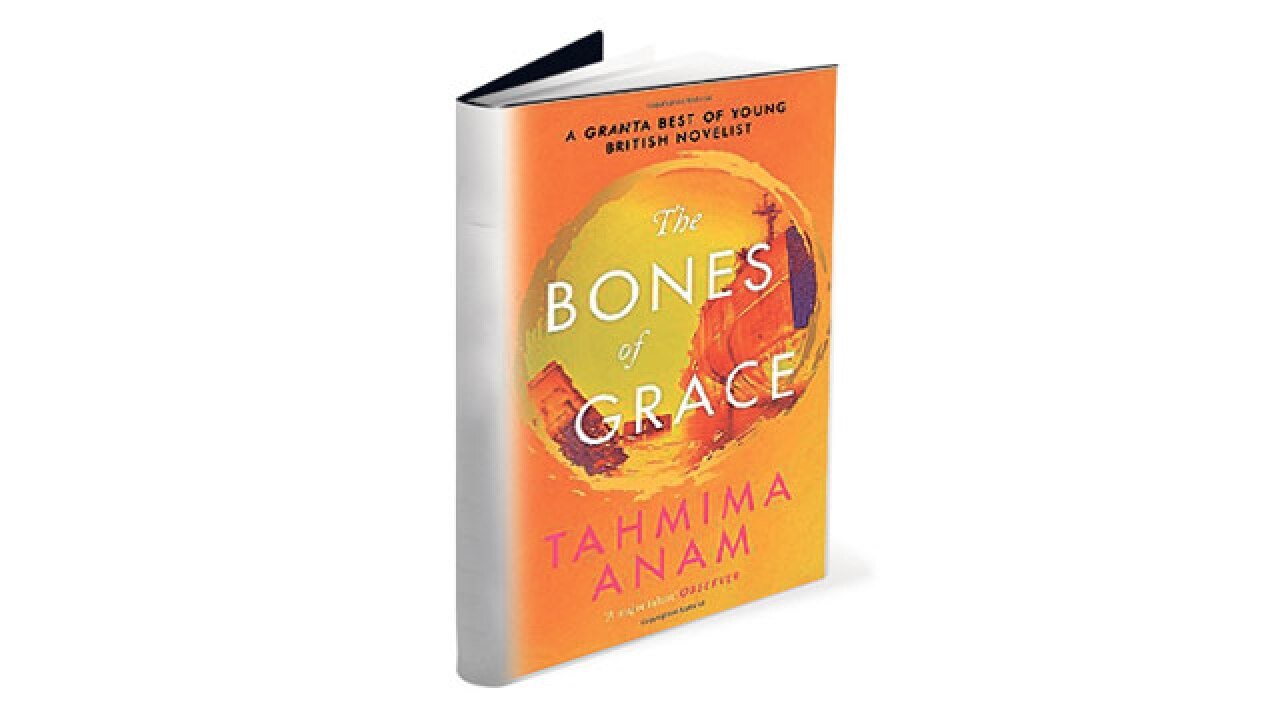
After her absorbing The Golden Years and The Good Muslim, the saga of a family unfolding against the epic backdrop of the birth of Bangladesh and its aftermath, the third in Tahmima Anam's trilogy leaves you strangely disconnected.
Moving away from the turbulence of the past and Bangladesh itself, The Bones of Grace cuts an arc from the leafy avenues of Cambridge, US, to the ship breaking docks of Chittagong as it traces its protagonist Zubaida Haque's restless yearning for love and belonging. Along the way, Zubaida, a marine palaeontologist, also touches down on dusty archaeologist digs in Dera Bugti in Pakistan and, of course, Dhaka, the city she calls home.
She seems to have it all on the face of it – the beginnings of a great career that takes her from Harvard to Dera Bugti, loving parents and a boyfriend back home who ticks all the right boxes of being good looking, affluent and affable. But the knowledge that she has been adopted gnaws away at any chance of contentment. That's the Zubaida we are introduced to in the opening pages, the one who breaks into helpless sobs in a darkened concert hall as Shostakovich fills the air and memories of her ninth birthday when she was told of her adoption come flooding back. It's a turning point, because sitting next to her is Elijah Strong. The wordless comfort he offers is their first exchange, the beginning of an intense relationship that is the underpinning of the entire book.
With the book written as a love letter of sorts from Zubaida to Elijah, the American academic and musician is the invisible presence, never far from our minds.
He is the most important of the many pieces of Zubaida's life, but somehow the jigsaw doesn't come together in the way it should. Something doesn't quite gel in the large picture of the book's many varied characters — ranging from Zamzam in Pakistan, the son a tribal chief who is kidnapped and disappears forever, and Zubaida's activist mother Ammoo — and its many locales.
Perhaps the weak link is Zubaida herself, who comes across as irritatingly inward looking despite her global travels and the spectrum of interesting people that she meets. She allows herself to be forced into marriage with childhood friend Rashid. Given the close ties between his family and hers, and her own relationship with Rashid, that is a situation many women would empathise with. But her rootlessness and the obsession with being adopted left me at least cold.
It's difficult to get a grip on Zubaida. When she meets Gabriela, the British researcher looking to make a film on ship breaking docks and its workers, she is reminded of a "vintage cigarette advertisement. A cross between that and a hippy and a biker". And when she says, "I was a little disgusted but also thrilled to be in the presence of someone so completely out of context", you wonder why a 'global citizen' like her would be so judgmental rather than observational.
But in this halting life story of Zubaida and her preoccupations, Anam introduces us to a range of interesting characters, each of which could perhaps make for the protagonist of their very own book. There's Gabriela, of course, and Anwar, the ship breaker whose own doomed love story holds the secret that will forever change Zubaida's life, Dolly, her high society mother-in-law, the young Mo, she meets on board the soon-to-be broken down ship, Grace, and so many others.
Anam's dexterous writing also brings to life the many set pieces of this book – the dust and grime of Dera Bugti, the sweat and tears of the ship breaking yard, the 'slave' labourers behind the glitter of Dubai, the Dhaka of "watery air making everything heavy and indolent" in which live the elite with their Ferragamo shoes, large drawing rooms with four sofas and luxurious country homes.
The clunky, rather graceless title, in fact, bridges the gulf between the "bones of grace" of the fossilised whale in Dera Bugti and the skeletal ship Grace in Chittagong.
As the book winds to a close, with a secret in the open, there's the tantalising hope that Zubaida's love story might actually end up in a happy place. There are no happily ever afters, but maybe there never are.